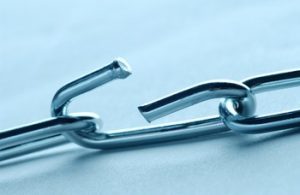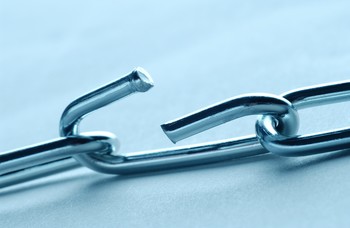
I’m so done with lazy LinkedIn users.
If you’re the consummate LinkedIn networker, I’m not talking about you, so how about just passing this along who’s not? There are more than enough folks who need to know!
Lazy LinkedIn Behavior No. 1: Sending a pre-written connection messages
If you met someone at an event, would you say: “I’d like to add you to my professional network.”
I hope not! So why would you say it on LinkedIn, when you want to make a great first impression?
If you want to avoid scripted invitation messages, there’s only one “Connect” button to use: The one located below a person’s picture when you open up his or her full profile. Read all about them, scroll through their bio, and then click that“Connect” button.
Once the customizable message box opens up, erase all of the standard content and write something personal. Here are some examples:
- I read about you in “website, article, speech”; and you have a fabulous background. I would like to connect to your professional network. Thank you, .
- I found you on LinkedIn, and I’m applying to a job at your company. I would like to connect with you here. Thank you,
- We have a number of people in common such as “name, name, and name”; and it would be great to connect here. Thank you,
- We met at on and I would like to follow up with you. Let’s start here on LinkedIn. Regards,
Lazy LinkedIn Behavior No. 2: Selling something without building a relationship
LinkedIn is a huge database that’s useful on many levels, but it’s awful for some interactions. Here’s a real solicitation that I received from someone who just connected with me on LinkedIn:
“Diana, thank you for connecting with me on LinkedIn. I work for and would like to send you information on our offerings. What do you do, professionally? I saw an article about you in the Houston Business Journal. Please write me back with the best time for us to talk.”
This person broke a number of sales and networking rules:
- Spelled my name wrong — bad start!
- Didn’t notice I don’t live in Houston; I’m not a prospect for them.
- Put the onus on me to write them back with a time to talk.
- Took the easy way out — I would expect to receive a professionally written prospecting letter to my direct e-mail (often found under “contact information” in LinkedIn profiles).
I immediately dropped my LinkedIn connection with this person to save myself — and my connections — from further solicitations.
What you can do:
- Study the prospect’s profile. Go to his or her personal website if they have one, and search out more information about them.
- Write a formal business note using LinkedIn. Try something like this: “Dear Dana, thank you for connecting with me here on LinkedIn. I read about your successful background and am interested in asking you a few questions. I may be able to provide you services and I would like to explore the possibilities. May I have the e-mail address you prefer for business correspondence? Sincerely, name, title, company, phone
Take the LinkedIn tutorials, buy a book on how to use LinkedIn, watch YouTube videos — whatever suits your learning style — but do something! Be more personal, more effective, and more formal, and you will get better results.
Don’t forget: LinkedIn is a tool for developing meaningful professional relationships. Use it as a launching pad to talk to people on the phone or meet face-to-face for the best results.



